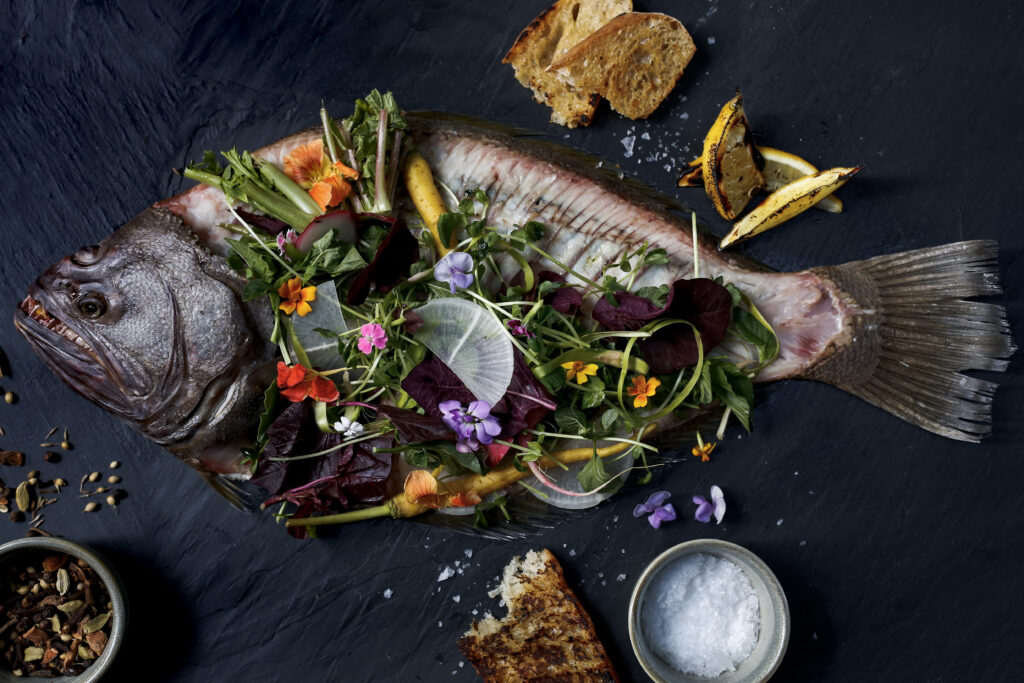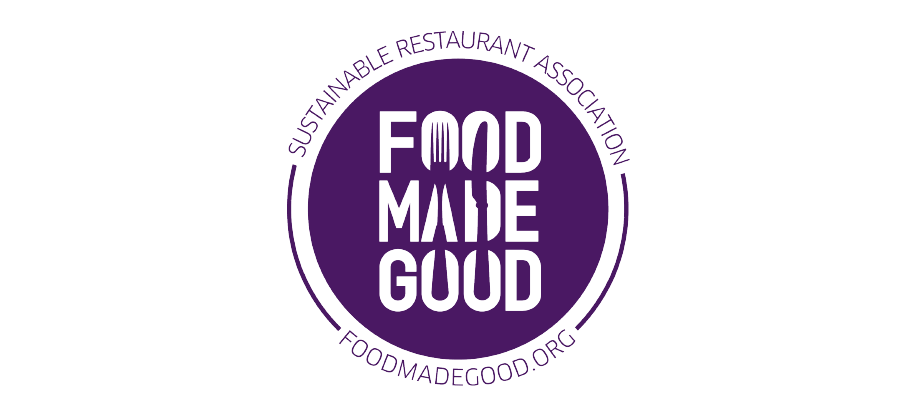Thinking Differently About Food Waste
March 2024
Share this exclusive content from Saladplate

Photo Credit: BOCA
BOCA is a modern Spanish restaurant located in Dubai’s bustling financial district. With the simple goal of looking at the waste they generated, BOCA identified several opportunities to reduce their impact, particularly through waste reduction and proper segregation. This initiative aimed to not only reduce environmental impact but also optimise operational efficiency and align with BOCA’s Sustainability Manifesto.
Background:
In 2015, part of BOCA’s initial sustainability journey started by looking at the waste generated in their operation. An easy win was the elimination of single-use plastic straws, but this was hardly enough. What else could they look at? They needed to be proactive to achieve any meaningful results so sought to understand the extent of their waste generation and possible opportunities for improvement. They began by simply examining the volume and type of waste generated from the restaurant.
Problem:
You can’t improve what you don’t measure and despite initial efforts to reduce waste here and there, BOCA lacked comprehensive data. There was a need to quantify waste production accurately, establish baseline metrics, and set reduction targets to drive tangible change.
Approach:
- Measurement and Segregation:
BOCA began by implementing a low-tech system – a weighing scale and an Excel sheet. Using these very accessible tools, they began to record waste types and weight on a daily basis. Six categories of waste were segregated: used cooking oil, glass, organics, cardboard and paper, metal, and plastics.
- Appointment of Waste Officer:
At the end of a busy day, dealing with waste is the last task any employee wants to deal with. Recognising the importance of dedicated oversight, BOCA designated an industry-first Waste Officer with complete autonomy on how to manage the responsibility.
This role was responsible for ensuring correct segregation and accurate measurement practices with a requirement to communicate with the bar, kitchen, and service team on their waste production.
- Enhanced Awareness:
Implementing new processes to staff needs more than a change in policy. Understanding the reason why was as important as recognising how much waste was being generated. Transparent bags were introduced to heighten awareness among staff to visibly display the types and quantities of waste generated, helping to reframe waste as a valuable resource and consciously consider ways of reducing waste in the first place.
- Collaboration, Partnerships and Alliances:
BOCA engaged with its real estate and facilities management company to understand waste disposal practices, ensuring proper handling and disposal of segregated waste streams.
BOCA actively looked for partners who could use their waste as a constructive resource such as organic waste being transformed into compost to help build healthy, local soil, empty oyster shells that can be used to support ocean reef habitats, empty bottles and corks to create special event decorations.
Through regular conversations with suppliers to understand what is being wasted, where and why, they looked at opportunities to reduce their impact through changes in their purchasing habits tapping into more seasonal produce from local producers.
- Setting Reduction Targets:
By establishing baseline metrics, BOCA set reduction targets, fostering a culture of continuous improvement and accountability.
To achieve targets, a proactive and conscious waste management approach was adopted including maximising ingredients across menus, using demand-driven inventory by employing a ‘market board’ promoting items in limited supply and eliminating single-use plastic utensils such as straws, stirrers, and cutlery.
- Sharing Knowledge
BOCA’s Founder and Chief Sustainability Officer Omar Shihab, regularly shares the why and how around the restaurant’s waste management practices encouraging the UAE hospitality industry members to start their own sustainability journey through waste reduction.
BOCA’s practices are accessible on their website through their Sustainability Manifesto.
Benefits:
- Environmental Impact:
Implementation of the waste management program including pioneering the position of the Waste Officer, reduced BOCA’s environmental footprint by minimising waste generation and promoting responsible disposal practices.
- Operational Efficiency:
Proper waste segregation and measurement streamlined operational processes, reducing costs associated with waste disposal and potential fines for non-compliance.
Ensuring all food was maximised to reach its highest use helped keep organic waste to a minimum. Using soon-to-expire milk to make home-made ricotta cheese, tomato water in cocktail creations, dehydrated tomato skins that became a powder as a by-product of making paella serve as examples of waste being upcycled into quality ingredients.
- Responsibility:
BOCA’s commitment to sustainable waste management demonstrates dedication to improving the impact of the UAE hospitality sector, aligning with the UAE National Agenda for Sustainable Development and national targets around the reduction of food waste.
- Social License:
As an independent restaurant, openly communicating and sharing their approach to the reduction of waste, builds trust through transparency, appealing to environmentally conscious diners and corporate clients who seek sustainability-aligned venues for events.
Trust built with the wider community offers an opportunity to play an important societal role, bringing awareness to important issues such as consumption and waste.
- Brand Reputation
Since opening in 2014, BOCA has built a solid brand reputation that extends beyond the borders of the UAE for sustainable gastronomy. In 2023, they were awarded the coveted Michelin Green Star which followed Sustainable Kitchen of the Year from Gault&Millau. In addition, as a first for the region, BOCA achieved a 3-star rating by the Food Made Good Standard joining only 70 other hospitality businesses worldwide that have been recognised by the Sustainable Restaurant Association at this level.
Tangible Outcomes:
- Despite experiencing business growth, BOCA was able to decrease waste by an average of 5% across most categories from 2021 to 2022.
- While investments of time and resources have been required, the long-term cost savings BOCA have gained support viability in a fiercely competitive and rapidly growing industry.
- Enhanced brand reputation has positioned BOCA as the market leader for sustainable corporate and industry events, creating product differentiation and competitive advantage.
- Having the capability to diversify their target market helps to offset cyclical footfall and potentially spread business into off-peak times.
- Innovative thinking around ingredient maximisation has promoted menu changes that have reduced kitchen labour and waste. As an example, instead of peeling and cutting potatoes to create uniform shapes, utilising the potato in its entirety facilitated a more nutritional menu item and eliminated up to 10kg per day of potato peels. Additionally, using stale bread from their bakery enabled the creation of “Yesterday’s Bread”, a popular menu item (insert image).
- Reframing waste as a resource translates into selling used cooking oil (a waste product for every commercial kitchen) to a government-approved operator who recycles it into biodiesel. Used cooking oil constitutes ~32% of BOCA’s CO2
Conclusion:
BOCA’s conscious waste management approach represents a role model for sustainability and responsible business practices in the UAE restaurant industry. By implementing robust measurement, segregation, and reduction strategies, BOCA not only fulfills its environmental obligations but also reaps tangible operational and reputational benefits. This initiative underscores a commitment to building a healthier hospitality industry and offers diners reassurance that when dining at BOCA, their impact is one of the lowest in the UAE.

Author: Keary Shandler, UAE Partner, Food Made Good
The Food Made Good Standard is the world’s largest sustainability certification tailored for the sector. With a holistic approach that includes every aspect of what sustainability means in today’s environment, the Standard is rooted in practical actions that foodservice businesses can take, providing clear direction, support and – ultimately – a respected, recognised third party certification that customers and stakeholders can trust.



